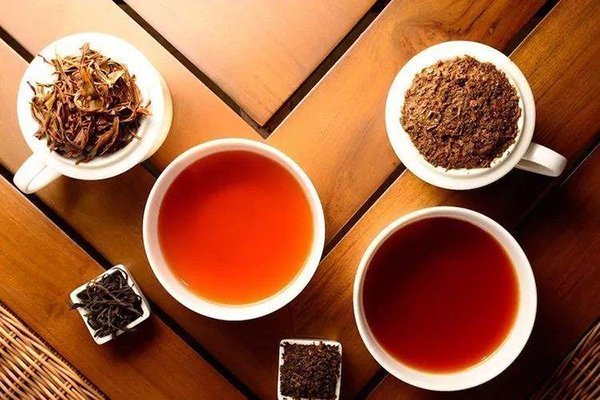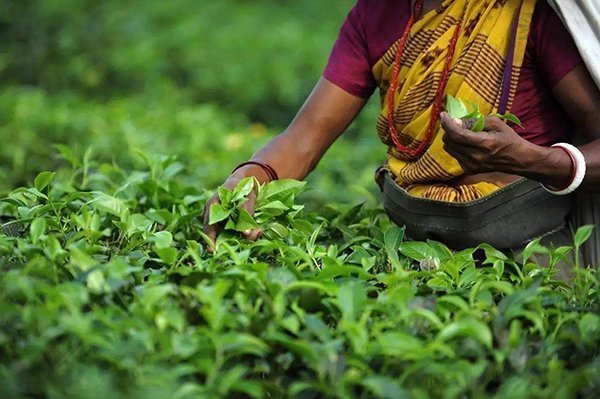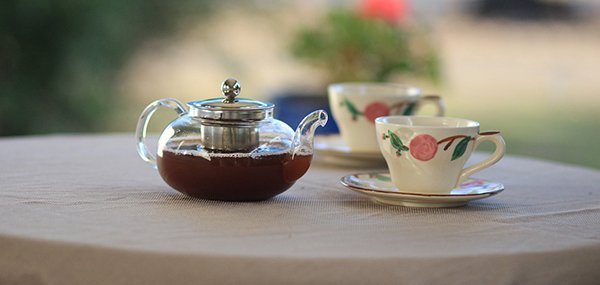
What is Ceylon tea?
Ceylon tea takes its name from Ceylon, the name of Sri Lanka before it became independent from British rule in 1972.The seeds of the original tea tree were brought to the island in 1824. At first, they had nothing commercial value, because cinnamon was a main government-backed crop. After the economic crisis sapped demand for spices, farmers turned to grow coffee, but the attempt didn’t work either. As a result, the country chose to try growing tea as the main commercial crop.
In 1867, James Taylor, known as the “Father of Ceylon Black Tea“, took the lead in introducing tea tree seeds and planting technology from India. He planted tea trees in Kandy tea district and successfully shipped his first batch of goods to London in 1872. Ceylon black tea has become popular since then.

Types of Ceylon tea
Ceylon tea types vary widely depending on the location of the tea plantation. Tea plantations are classified by altitude in Sri Lanka.High-grown Tea
Highland Ceylon teas are grown in tea gardens above 1,200 meters in altitude. Tea grown at high altitudes has a dark brown appearance, the tea it steeped is light and elegant. These teas are considered to be of very high quality but also be quite expensive, which are considered more aromatic and sweet than other Ceylon teas.The Nuwara Eliya region in central Sri Lanka is known for producing excellent quality of tea throughout the year.
Middle-grown Tea
Middle-grown tea is grown in tea gardens above 600-1200 meters in altitude, the well-known producing district is Kandy. Middle-grown tea has both the characteristics of high-grown tea and low-grown tea, rich in aroma and lasts a long time, has its own unique taste.Low-grown Tea
Low-grown tea is grown in tea gardens which below 600 meters in altitude, such as Galla tea garden. The low-grown tea usually has a beautiful copper color, a large yield and a strong flavor, and is often used to blend with other teas or plants to make flavoured or blended tea.The nutritional content and caffeine content of Ceylon tea
Ceylon tea is widely praised for its high polyphenols content. Polyphenols are the compounds which mainly from natural plant food, with antioxidant effects. They are found in organic chocolate, certain fruits and vegetables, and extra virgin olive oil, but tea is regarded as the main provider of polyphenols. Rich polyphenols make tea take so highly valued.In addition to antioxidants, Ceylon tea also contains caffeine, just like other types of tea. A 7-ounce cup of Ceylon black tea contains 58 milligrams of caffeine, compared with half the amount found in green tea. And white tea can contain anywhere from 6 mg to 75 mg of caffeine, depending on where it produces.
This range of caffeine amount is generally safe for most adults, because the Dietary Guidelines Advisory Committee (DGAC) found that 400 mg of caffeine intake per day will not be harmful to health.
Benefits of Ceylon tea

A healthy weight loss tea
Drinking Ceylon tea boosts your metabolism, which helps your body burn fat faster. Ceylon tea also lows in calories, it is a good drink for those who care about their calorie intake.Improve your immune system
Ceylon tea contains a variety of antioxidants, that help slow the number of free radicals increase throughout the body. That helps your immune system to focus on doing its job of fighting off pathogens.Keep your heart health
Ceylon tea is rich in potassium, a nutrient associated with a healthy cardiovascular system. As a vasodilator, potassium helps your blood vessels relax, so that stabilize your blood pressure levels.Bring you energy
Ceylon tea is made from caffeinated tea plants, so the tea it is steeped from also contains a certain amount of caffeine. For those who don’t like the taste of coffee, but need caffeine to refresh in the morning, Ceylon tea is the perfect alternative.Get healthy skin
Scientists have proved that antioxidants found in Ceylon tea, can help prevent the loss of collagen due to oxidative stress. Collagen is an essential protein critical to skin structure, so Ceylon tea can take an effect in getting healthy skin.Preventing diabetes
Drinking Ceylon tea may help manage blood-sugar balance, give better help with diabetics. And by maintaining healthy blood-sugar balance, the risk of diabetes-related complications may be reduced.
Common side effects of Ceylon tea
For example, drinking too much Ceylon tea can cause a range of problems, from mild to severe, such as:Headache → Nervousness → Insomnia → Vomiting → Diarrhea → Heart rate instability → Heartburn → Mental derangement
If those above happen on you, seek medical attention, and receive treatment immediately. Also, stop drinking Ceylon tea to prevent it keep harming your health.
Pregnant women should not drink Ceylon tea or any other caffeinated beverage because it can seriously affect the health of their unborn child.
Studies have shown that caffeine travels easily through the placenta and directly into the fetus, providing no benefit at all but potential harm, such as:
Increased risk of miscarriage
Low birth weight
A birth defect, such as a cleft palate
Increased risk of Sudden Infant Death Syndrome (SIDS)
Decreased cardiac function or impaired heart function
No comments:
Post a Comment